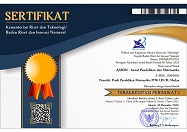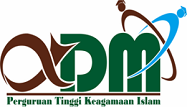The Parhalaan of the Batak Ugamo Malim in the arithmetic context
Abstract
The implementation of ethnomathematics approaches that connect culture and mathematics education remains limited, despite the need to bridge mathematical concepts with real-world applications rooted in local culture. The Batak Parhalaan calendar, which incorporates arithmetic computations, has not been extensively explored within mathematics education. Prior studies often focus broadly on ethnomathematics without delving into specific cultural contexts, such as traditional calendars and their relevance to learning mathematics. This study addresses this gap by investigating how the Parhalaan calendar can be integrated into mathematics instruction to enhance students' understanding of mathematical concepts. Employing a qualitative descriptive approach, this research examines the Batak Ugamo Malim tribe’s calendar system, calculates Parhalaan in relation to arithmetic, and analyzes it from a mathematical perspective. The results reveal the application of modulo arithmetic in Parhalaan, specifically the modulo 7 system, which reflects the 7-day week structure. Results reveal the application of modulo arithmetic in Parhalaan, specifically the modulo 7 system, reflecting the 7-day week structure. The formula X+Y−Z=S mod 7 harmonizes the traditional Batak calendar with the Gregorian system, providing a systematic method for determining days. Integrating this concept into mathematics education strengthens problem-solving, logical reasoning, and interdisciplinary understanding. Linking mathematics with cultural traditions fosters appreciation for local heritage, broadens perspectives, and raises awareness about preserving cultural diversity, thereby enriching the educational experience for students.
Keywords
Full Text:
PDFReferences
Afaq, A.L., Ahmad, A.F., Fatmawati, A., & Qulub, S.T. (2022). Implementasi taqwim standar indonesia sebagai pemersatu kalender masyarakat indonesia. Al-Afaq: Jurnal Ilmu Falak dan Astronomi, 4(2), 157–180. https://doi.org/10.20414/afaq.v4i2.4166
Agustina, L.O., Sunardi, & Susanto. (2016). Etnomatematika pada penanggalan Jawa terkait Aritmatika di desa Yosomulyo. Kadikma, 7(1), 22–23.
Amalia, R.D., & Mariana, N. (2023). Eksplorasi konsep matematika sekolah dasar pada penanggalan jawa dalam bingkai etnomatematika. JPGSD: Jurnal Penelitian Pendidikan Guru Sekolah Dasar, 11(7), 1525–1535. https://ejournal.unesa.ac.id/index.php/jurnal-penelitian-pgsd/article/view/53930
Angerler, J. (2021). Indigenous knowledge about time-keeping : astronomical aspects of the batak calendar. Indigenous Knowledge, 1(1), 1–5. https://doi.org/10.24198/ik.v1i1.32627
Atmaja, I.M.D. (2014). Ethnomatematika pencipta lagu dan kaitannya dengan materi pembelajaran matematika. Jurnal Santiaji Pendidikan, 4(1). 1-12. https://bit.ly/3W1NrXQ
Belleza, K.E., & Loquias, C.M. (2015). Conceptualizing minuet in g major through mathematics and the generalized interval system. Global Journal of Pure and Applied Mathematics, 11(6), 4413–4445. https://bit.ly/401jatf
Budi, J. (2020). Ethnomathematics : konsep matematika dalam pembuatan dan penggunaan klakat. Prisma: Prosiding Seminar Nasional Matematika, 1(1), 252–257. https://journal.unnes.ac.id/sju/prisma/article/view/37558/15475
Christianto, J. (2016). Aritmatika modulo pada validasi nomor isbn. Sekolah Teknik Elektro dan Informatika Institusi Teknologi Bandung. https://bit.ly/4a2ttlB
Lubis, A.M., Jusuf, S., Butar-butar, T.M., Malau, M. (1985). Kalender peramalan batak. Sumatera Utara: Departemen Pendidikan dan Kebudayaan Proyek Pengembangan Permuseuman. https://shorturl.at/yHajo
Fathiyah, H. (2022). Penerapan teori bilangan pada permainan tebak umur ala hyakugo gen. Sekolah Teknik Elektro dan Informatika Institusi Teknologi Bandung. https://bit.ly/4j1sh6c
Fauzi, L.M. (2022). Buku ajar etnomatematika. Jawa Barat: CV. Jejak.
Frifana, S.O. (2022). Implementasi kalender batak (parhalaan) pada adat batak. Jurnal Elfalaky, 6(1), 137–158. https://doi.org/10.24252/ifk.v6i1.27182
Gultom, I. (2010). Agama malim di tanah batak. Jakarta: Bumi Aksara.
Insani, K., Syahminan, M., & Jailani, M. (2021). Marari sabtu dalam ugamo malim pada komunitas parmalim di kota medan. Studia Sosia Religia, 4(2), 1–11. http://doi.org/10.51900/ssr.v4i2.11061
Lukman, Bahri, S., & Irwansyah. (2018). Penerapan aritmatika modulo untuk menguji validitas dan mengembangkan nomor isbn /international standard book number (studi kasus: dinas perpustakaan dan kearsipan provinsi nusa tenggara barat). Eigen Mathematics Journal, 1(2), 1–7.
Mulyadi, M., Nursuprianah, I., & Raharjo, H. (2021). Penerapan aritmatika modulo pada transposisi akord berbasis web. Nurjati Journal of Mathematics and Mathematical Science, 1(1), 29-47.
Murdiyanto, E. (2020). Metode penelitian kualitatif. Yogyakarta: Lembaga Penelitian dan Pengabdian Pada Masyarakat UPN "Veteran" Yogyakarta Press.
Nurdiansah, M.A., & Artamefina, A. (2023). Penerapan penanggalan jawa dalam penentuan hari awal bercocok tanam di desa ngrangin kabupaten malang. An-Natiq Jurnal Kajian Islam Interdisipliner, 3(1), 8–15. https://doi.org/10.33474/an-natiq.v3i1.19132
Rahma, A.N., Rachmawati, & Zukhrianto. (2020). Aplikasi sistem modulo 7 dalam prediksi peringatan hari besar nasional indonesia tahun 2030. MAP Journal, 2(2), 1–8. https://doi.org/10.15548/map.v2i2.2260
Rahma, N.A., & Zukrianto. (2021). Prediksi 1 ramadhan tahun 1445-1460 h dengan aplikasi. Lebesgue : JurnalIlmiahPendidikan Matematika, Matematika Dan Statistika, 2(1), 96–111. https://doi.org/10.46306/lb.v2i1.49
Rofifah, D. (2020). Teori aritmatika modulo. In paper knowledge toward a media history of documents.
Septia, T., Nuraini, A., & Wahyu, R. (2024). Eksplorasi etnomatematika pada aktivitas masyarakat petani di kecamatan gondanglegi kabupaten malang pendahuluan. Jurnal Inovasi Pembelajaran Matematika: PowerMathEdu (PME), 3(2), 253–262. https://doi.org/10.31980/pme.v3i2.1702
Sihombing, D.I., & Simanjuntak, R. (2020). Etnomatematika dalam transposisi akord ende mandideng [Prosiding seminar ethnomatematics]. Universitas HKBP Nommensen.
Tambunan, R. (2023). Kepercayaan parmalim dalam relasi agama dan budaya. De Cive: Jurnal Penelitian Pendidikan Pancasila Dan Kewarganegaraan, 3(12), 437–442. https://doi.org/10.56393/decive.v3i12.2059
Utami, N.W., & Sayuti, S.A. (2020). An ethnomathematics study of the days on the Javanese calendar for learning mathematics in elementary school. Ilkogretim Online, 19(3), 1295–1305. https://doi.org/10.17051/ilkonline.2020.728063
Weaver, A. (2012). Arithmetic: a textbook for math 01 3rd edition (2012). New York: Department of Mathematics and Computer Science.
Yuli, T., & Siswono, E. (2020). Inovasi pembelajatan matematika di era revolusi industri 4.0 [prosiding mahasaraswati seminar nasional pendidikan matematika]. Universitas Mahasaraswati, Denpasar, Indonesia.
https://e-journal.unmas.ac.id/index.php/Prosemnaspmatematika/article/view/889
Yuniawatika. (2015). Penerapan artimatika modulo dalam budaya primbon Jawa [Prosiding seminar nasional matematika dan pendidikan matematika]. UNESA, Surabaya, Indonesia. https://bit.ly/4gTkq8A
DOI: http://dx.doi.org/10.30821/axiom.v13i2.22118
Refbacks
- There are currently no refbacks.
Copyright (c) 2024

This work is licensed under a Creative Commons Attribution-ShareAlike 4.0 International License.
p-ISSN: 2087-8249 | e-ISSN: 2580-0450
Indexed by:
AXIOM : Jurnal Pendidikan dan Matematika is licensed under a Creative Commons Attribution-ShareAlike 4.0 International License.











